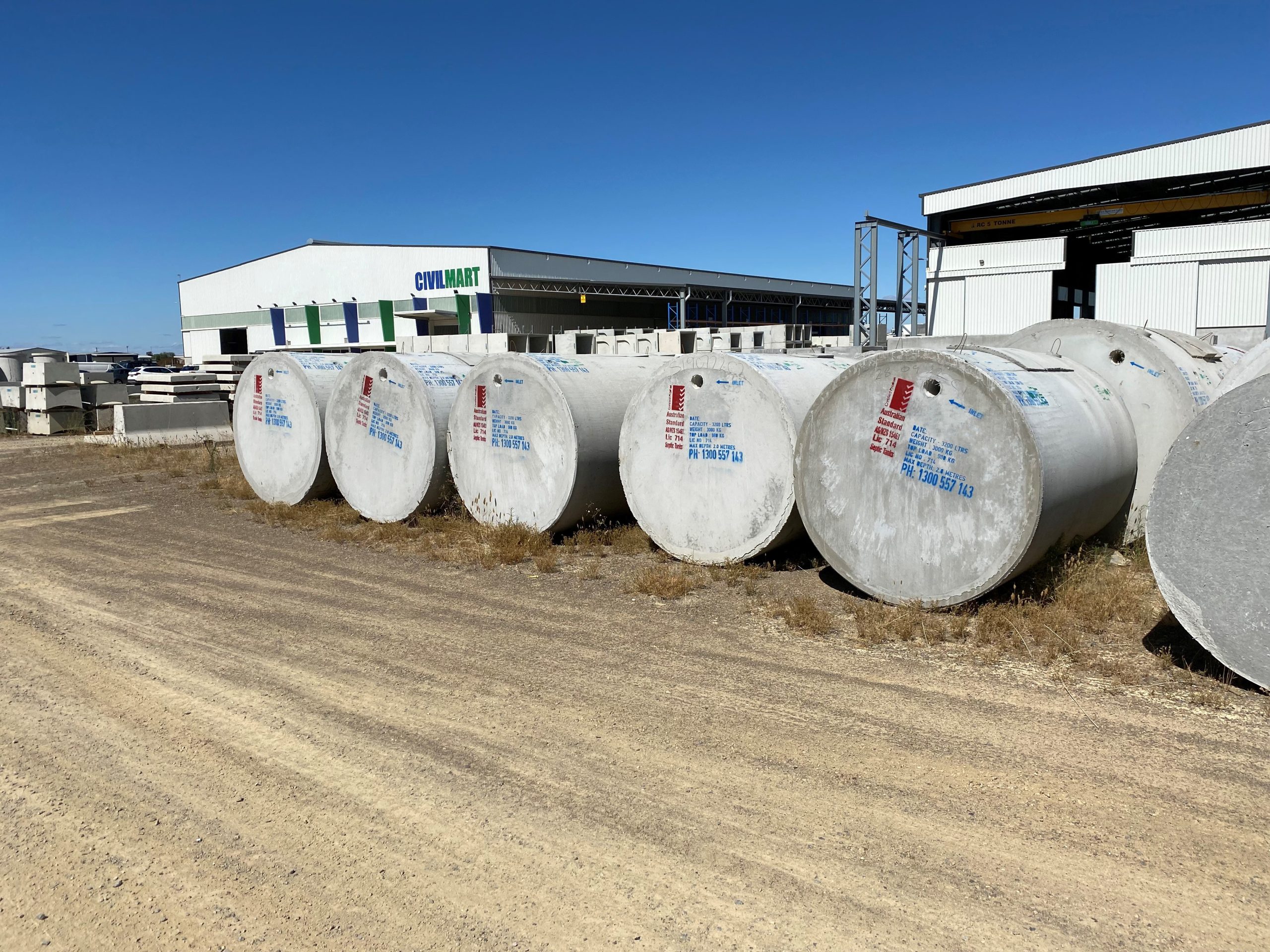Plastic and concrete septic tanks have proven to be highly effective at treating wastewater. Both of these products are very popular when it comes to a homeowner’s first septic tank purchase. With their long-lasting and durable qualities, both concrete and plastic tanks can provide homeowners with years of reliable service if properly maintained according to the manufacturer’s instructions.
What is a septic tank?
A septic tank is a container where wastewater is stored before redistributing effluent through to a chosen treatment. It’s located in the ground, and it separates solid waste from liquid so that the liquids can be returned to nature, typically through a sand treatment field. Concrete septic tanks are often used because they tend to last longer than plastic ones.
When choosing between concrete or plastic for your septic tank project, make sure that you have all the information before making a decision, you don’t want to have any regrets later!
Why do I need a septic tank?
Every time you flush the toilet, a small amount of wastewater (liquid and solid waste) goes down the drain. This wastewater then flows through a pipe to your septic tank, where it’s treated before being released into the ground.
Septic tanks are typically used in homes and businesses where there is no access to a central sewage network to treat wastewater for disposal. They may also be referred to as “sewage treatment systems” or “on-site sewage treatment systems.”
Advantages of concrete
Concrete septic tanks have several advantages over plastic, including:
- Less likely to leak. Plastic septic tanks are subject to cracking and leaking, which means that you need to regularly check them for cracks.
- More durable. Concrete is a stronger material and is less likely to crack or break over time than plastic is, so if you’re planning on keeping your septic tank for decades, concrete may be your best bet.
- More resistant to freezing. If you live in an area with cold winters where temperatures drop for extended periods of time, concrete may be better suited for your needs as it will not freeze as easily as plastic does in this environment (but still needs some insulation).
Advantages of plastic
Plastics are a great choice if you’re looking to save money, since they’re lighter and easier to move than concrete tanks. And if you are planning on moving your tank at any point in the future, plastic tanks make the process easier.
Plastic comes with a much lower price tag than concrete, a perk that’s especially appealing for those who are on a tight budget or have just bought their first house and don’t want to invest too much money in a septic system right away. Additionally, plastic septic systems tend to require less maintenance over time than their concrete counterparts due to their flexibility and durability.
Which is better for your septic system?
If you’re considering a septic tank, there are some pros and cons to each. A concrete septic tank is more expensive than the plastic option, but it lasts longer and is less likely to crack or break. Plastic tanks are cheaper and lighter than concrete, which makes them easier to install in areas where space may be limited.
Concrete septic tanks use more materials during production and require more energy to create as well as transport them (since they’re heavier). However, they are designed with features that make them easy to maintain over time: for example, their design allows sediment buildup inside the tank, so it doesn’t clog up pipes leading away from it, this prevents sewage from backing up into homes during heavy rains when excess water needs somewhere else go besides down your drainpipes! Concrete has also been proven by several studies done over decades worth of research that shows no negative effects on human health whatsoever (unlike plastic).
Another advantage with concrete septic systems is how long they last – each home owner can expect theirs will last 30+ years until replacement becomes necessary due when needed most! This means fewer maintenance costs throughout those years which translates into lower overall costs compared against regular repairs made through normal wear-and-tear caused by everyday use like frequent flushing toilets etcetera…
Domestic Wastewater Treatment Systems
A domestic wastewater treatment plant is a system designed to recycle and reuse the water from our households or businesses. Some examples of these systems include Civilmart’s SuperTreat available in Queensland or Civilmart’s Turbo Jet Single available in Victoria.
Typically manufactured as precast concrete unit, the system is designed for your wastewater to travel through multiple chambers to complete a treatment process.
The goal of the treatment plant is to convert wastewater and greywater created in our showers, kitchen sinks, washing machines, dishwashers, baths and even our toilets into a more environmentally friendly effluent. That means we can use that water again to irrigate our gardens, or even pump that water back through our laundries and toilet systems.
Plastic and concrete both have advantages, but here’s our recommendation
Both concrete and plastic septic tanks have their advantages. Concrete is more durable, long-lasting, and can be repaired if damaged. However, its higher cost may make it less than ideal for some homeowners. Plastic tanks are much more affordable but are susceptible to cracking or bending over time. Bear in mind if a plastic tank is not correctly weighted down during installation there is also the potential for your new system to rise during heavy rainfall or flooding.
In the end, there are advantages to both concrete and plastic septic tanks. However, we believe that concrete is the better choice because of its durability and longevity. If you’re looking for a tank that will last longer and won’t require replacement anytime soon, we recommend getting a concrete tank from Civilmart!
Why choose Civilmart?
The team at Civilmart are experts in our industry, not just septic tanks and treatment plants, but everything precast!
With team members located in Victoria, New South Wales, Queensland and South Australia we have the knowledge and expertise guide you through your next project or installation. Get in touch with your local team today!
Join the Civilmart family
Stay up to date with latest product releases, newest industry innovations and more!


